ITS Getting to Zero Emissions
Zero Emissions Programs
ITS initiatives contain various programs aimed at fostering environmental issues and achieving sustainability objectives, such as Tandur Race, ITS Climate Action, Pouring Eco Enzyme, and ITS Gowes Sehat, all geared towards empowering the academic community, students, and locals to innovate in utilizing urban areas for cultivating edible and medicinal plants, while simultaneously handling environmental problems, especially zero emissions.
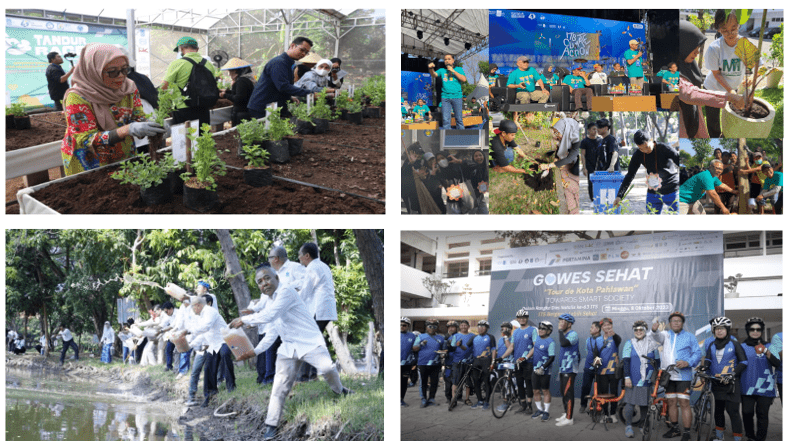
Renewable Energy
Currently, several places at ITS are using solar panels to reduce energy consumption and thus reduce gas emissions. Apart from that, using solar panels also saves huge costs for university. The Rectorate, Research Center, and several departments have installed solar panels to reduce carbon emissions.
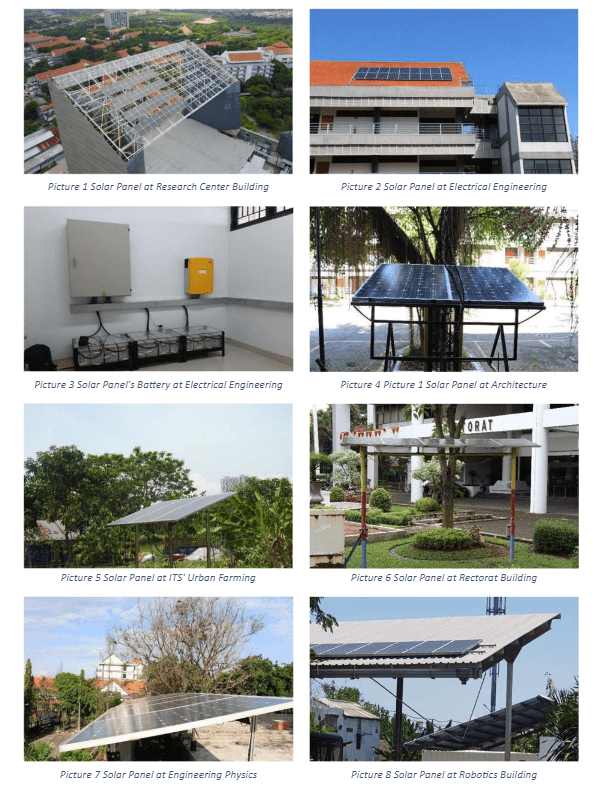
Sustainable Transportation
By embracing eco-friendly transport modes to reduce carbon emissions like iCar, Electric Buses, and Bicycles, ITS fosters a culture of environmental responsibility, with more than 70% of lecturers, staff, and students actively contributing to carbon emission reduction efforts on campus.
1. iCar (Autonomous Intelligent Car)
ITS launched an autonomous electric car that can drive itself without a driver. The iCar is equipped with various sensors such as the Global Positioning System (GPS) with high accuracy and the Light RADAR (LiDAR) sensor which enables the smart car to help the driver recognize potential dangers, prevent collisions, and reduce the risk of accidents, as well as being able to optimize the power of the electric motor drive.
2. Electric Bus
The campus bus is a free ITS pick-up and drop-off service that operates around campus on different routes with a total of 20 bus stops. There is also a Trans ITS application that can be downloaded to make it easier for students to know the route, schedule, bus position, and bus location. This application also provides points and reward features, which can later be exchanged for ITS products.
3. Bicycle
Campus bicycles are provided by ITS for free in order to familiarize the academic community with reducing pollution. Campus bicycles are available at several shelter locations. Just by exchanging their identity card, students can move around the campus location.
4. Automatic Gate
ITS installs automatic gates in several locations such as the ITS main gate and the ITS back gate. This installation is carried out specifically for registered vehicles that can pass through and enter the campus. So it can minimize the number of vehicles entering and reduce the number of motor vehicle emissions in the campus environment.
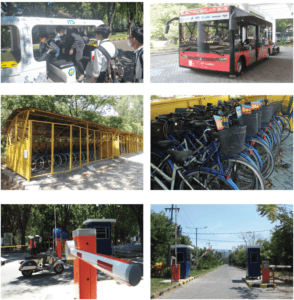
Zero Waste
Having initiatives towards a sustainable and environment friendly campus, ITS prioritizes issues such as water and air pollution reduction and waste management. The phenomenon of high level public consumption that led to and impacted the amount of waste with an unsettled management system concerned ITS to promote a new lifestyle in waste management. At ITS itself, waste processing is carried out with the 3R principle: Reuse, Reduce, and Recycle. The 3R principle is implemented by reducing the use of single-use materials, E-waste drop boxes, and waste sorting.
ITS measures the amount of waste generated and recycled across the university. Waste in the university is handled through composting and recycling, while food waste is handled through composting. The residue is sent to a landfill site. ITS also has a mini waste processing center to implement an organic waste treatment policy.
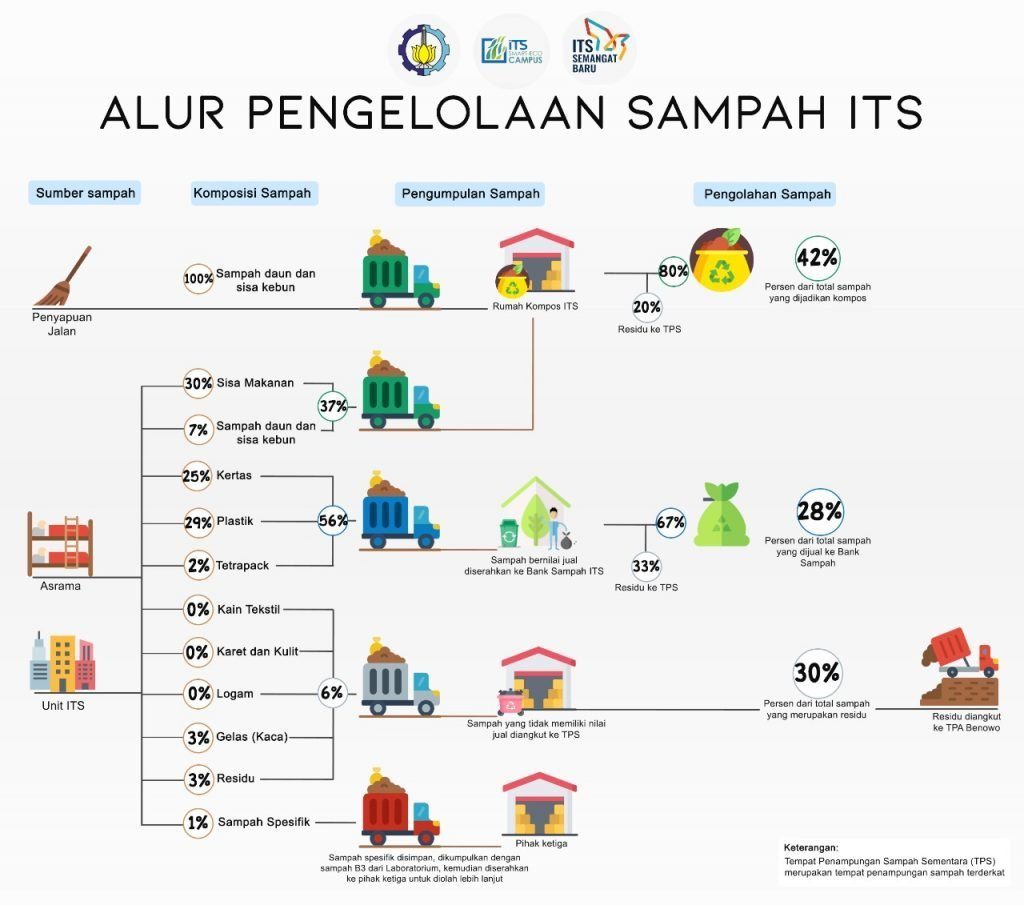
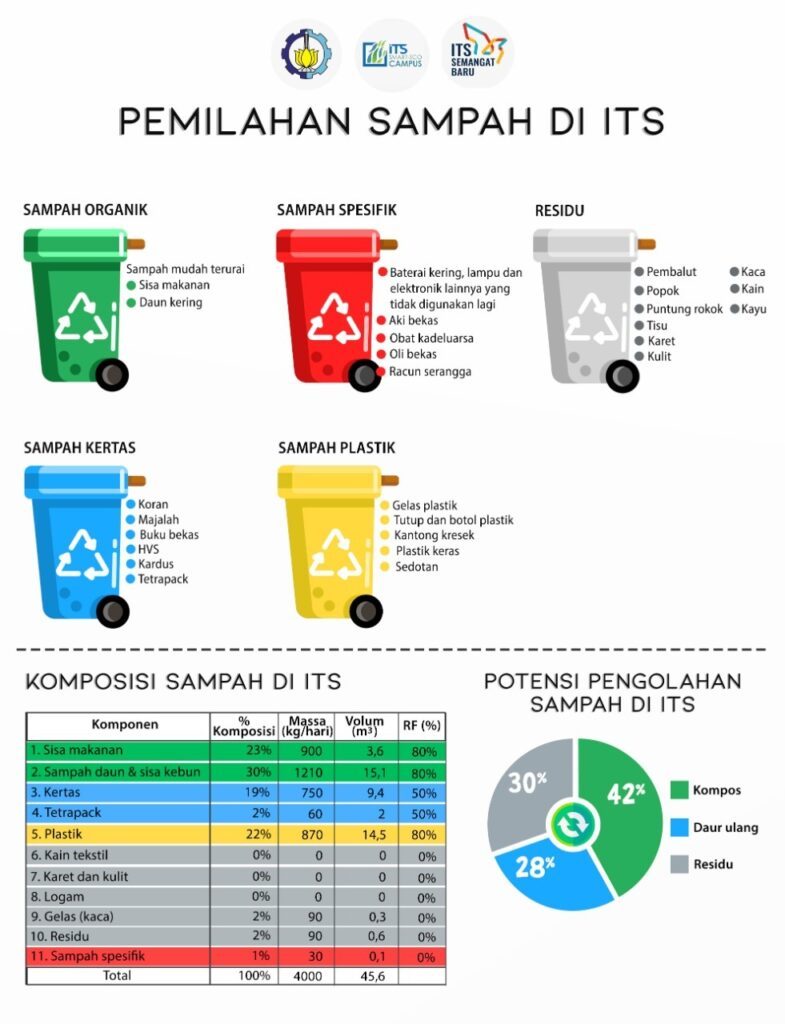
Related News
-
ITS’ Board of Management Meeting
ITS is forging ahead with strategic plans to optimize both its management strategies and resource allocations. Building upon the
May 13, 2024 09:05 -
ITS Getting to Zero Emissions
Zero Emissions Programs ITS initiatives contain various programs aimed at fostering environmental issues and achieving sustainability objectives, such as
May 13, 2024 09:05 -
ITS Program in Dedicating Environment Aspect
A total of 61 participants participated in the program. Participants from both online and offline showcased their creativity and
May 13, 2024 09:05 -
KKN Abmas to Raise Awareness about Legal Fishing
With the aim of increasing economic resilience for local communities, ITS Abmas Team spreaded around different area of Indonesia
May 13, 2024 09:05





